Hello.
It’s that time of year where we traditionally do a half-hearted round-up of the stuff we’ve covered on FFG.
I’m going to eschew the usual small talk about what kind of a year it’s been out in the real world, other than to acknowledge that things are tough for many and to send you all our best wishes.
For once, I’m going all-in on this round-up and attempt to make it a bit more detailed. (If you call something half-hearted, it ends up being half-hearted, perhaps).
So, in the spirit of new-year positivity, let us lean in to this all-new, fully comprehensive summary of the year 2022 on FFG!*
*Like it? Hate it? Write in with your thoughts – to the usual postal address – and you’ll be entered into an exclusive prize draw.
Action
We started the year with some belated 20th anniversary content, a Star Wars shooter double featuring a review of Jedi Knight II: Jedi Outcast and a discussion of Dark Forces, which we first covered in our very early days.
I didn’t mind Jedi Outcast, although its 2002 idiosyncrasies, particularly an abundance of snipers, seemed mildly more irritating than those of the older game (of which there are plenty, including the lack of a mid-level save). And I was rubbish with the lightsaber, too.
There followed another LucasArts two-header when we finally took a look at Indiana Jones and the Emperor’s Tomb, the 2003 follow-up to 1999’s Infernal Machine, which was another of FFG’s earliest reviews.
The newer game was a largely enjoyable romp, the older one a little harder to digest than I perhaps remembered. I talked about Tomb Raider, and not talking about Tomb Raider, rather a lot.
Next up was Stoo’s look at the 2005 horror shooter F.E.A.R. As I mentioned in our previous post, scary FPS games aren’t top of my list these days, and my colleague’s use of the phrase ‘permeating sense of dread’ suggests I’m unlikely to ever try this one, despite his thorough recommendation.
Then, much later in the year, it was back to Star Wars again, and the once-hyped Star Wars: The Force Unleashed, which I found slightly less engaging than I was hoping, but did at least have a couple of memorable set-pieces.
Adventure
We looked at two adventures this year, both from the year 2011, and with contrasting approaches.
First up was Telltale’s Jurassic Park, the main reason for my Steam Replay spider graph strongly highlighting the word ‘dinosaurs’ in its summary of my gaming year. A tale of minor characters elevated to starring roles while taking part in a story that intersected with that of the original film in a rather unlikely fashion, the adventuring was unfortunately rather static and the action heavily reliant on QTEs.
Much better was Gemini Rue, which stayed much closer to familiar point-and-click territory while evoking memories of sci-fi adventures past. Even its action sequences, often an unwelcome and poorly-implemented feature back in the 90s, worked well as a change of pace, while nodding to the cover shooter mechanic popular in contemporary big budget action games. Another decent effort from Wadjet Eye Games.
Racing
A daft shareware game called Road Hog! was the first racer to be unearthed and examined, early in the year. As I mentioned in the review, it’s the kind of oddity I hadn’t thought about for so long, part of me wondered if it ever actually existed.
Which it did. And was possibly even stranger in reality than I remembered. Not a long-lost classic by any means, but one worth digging up and dusting off for posterity at least.
After that, we went back to the Need for Speed series, and a remake/reboot of Need for Speed: Most Wanted, which was fast and looked nice, but was otherwise a major disappointment.
(Occasionally I wonder whether my lack of knowledge when it comes to newer games means I might be more easily swayed by their relative flashiness, which was definitely not the case here. Or is the opposite true, and I’m stuck in my ways and resistant to change and new things? Ah, who cares… I still didn’t really like Most Wanted (2012), as we must call it).
Then it was back to the 90s again and three sequels to games already covered. First, we had the Sega Rally stylings of Screamer 2, then a long-delayed reunion with Lance Boyle in MegaRace 2 – which was a bit rubbish, just like MegaRace, albeit for slightly different reasons. Manic Karts, meanwhile, was quite good – just like predecessor SuperKarts, in fact, and for exactly the same reasons.
Finally, we added another (possibly final) entry in our collection of early/mid-00s street-racing titles with the unnecessarily saucy Street Racing Syndicate. Despite being embarrassing in lots of ways, I actually quite liked the racing itself, although it does have a fairly frustrating endgame that necessitates some hefty repetition of races that you’ve already won.
RPG
Back in February, Stoo brought us a review of Gas Powered Games’ Dungeon Siege 2. (His question, ‘How do you lay siege to a dungeon anyway?’ – as posed in the intro to the review of the first game – is a line that still really tickles me. And how do you lay siege to space?) As far as action RPGs go, I think he rather liked it.
In his introduction this time around, my friend and colleague also offered up to me the RPG hat of wisdom and agility on the basis of my recent adventures in the genre. It’s an honour of which I am not worthy, although I did follow up my Mass Effect coverage of 2021 with reviews of Knights of the Old Republic and its sequel in 2022, so perhaps I could trade in the hat for a futuristic jerkin of moderate competence.
Why exactly this was such a Star Wars based year for me personally, I’m not sure. KOTOR's mid-00s take on things even tempted me to revisit the film prequel trilogy, my original opinion on which (they’re a bit rubbish) remained fairly static. As for the games, I think I bought some big Steam bundle a few years ago and since then they’ve all just sat there in one big mass, waiting to be unpicked. Anyway, KOTOR seemed like a good place to start, and I liked both games.
Simulation
Oh, hey, so I completed X-Wing, too! Which had officially been consigned to the Vault of Regret (i.e. probably unlikely to happen) many years ago.
In 2021, one idea for a possible anniversary double was to revisit TIE Fighter for a discussion alongside a new review of X-Wing. It didn’t happen, but that was the seed of my idea to have one final crack at the latter.
It’s an iconic game, and a hard game for sure, but surely not beyond the wit and cunning of Rik from the famous gaming site A Force for Good? Well, it nearly was, but I finally nailed it, after a few solid months of effort. And it was well worth it, too.
Will this herald more regular entries in the Simulation category? Am I now motivated to try our more old space shooters? It’s possible, although without the historical allure of trying to beat a particular game from my past, it’s more likely I might give up at the first sign of serious trouble.
Sport
It was a relatively quiet year in retro-sport-land, with coverage of two official tie-ins prompted by real-life events.
In recognition of the 2022 Winter Olympics, we took a look at one of the last real ‘Olympic event’ games to be released on PC, Vancouver 2010. For which I had reasonably high expectations, based on Eurocom’s summer equivalent title a couple of years previously.
Vancouver 2010 wasn’t without some entertainment value, but unfortunately seemed fairly light on content, even by the standards of the genre.
At the other end of the year, we had the morally dubious winter World Cup, and after rejecting various other candidates for review, I discovered that EA’s World Cup 98 could be persuaded to work on modern machines and set about revisiting it. Possibly the past inaccessibility of this previous lost love contributed to my disappointment in the reality, although I do think it has a tactical element that subsequent FIFAs ironed out, to their detriment.
Other Stuff
Elsewhere, our spoiler-tastic discussions of modern indie adventures continued, as Jo and I enjoyed a tale of the gig economy in an automated world of the near future in Neo Cab; an 80s-inspired kids-vs-horror adventure, Oxenfree; spying on people’s video calls in Telling Lies; and reminders of teenage awkwardness on the internet in Emily Is Away and Emily Is Away Too.
We also brought a couple of series to an end: The Big Cardboard Box was sealed up, and with my musical knowledge stretched to breaking point, we drew a line under Soundtracks, surely one of the greatest article series to flippantly cover 00s music trends as featured in racing and football games that ever existed. Who knows, perhaps exciting new ideas will replace these departed semi-regular features in the near future?
If not, there are plenty of other things to keep us occupied. Like reviews of old games, perhaps. Hopefully by now any regular readers will know what to expect from us in a calendar year, all things being equal, and we’ll do our best to maintain, improve (or, let’s face it, very slightly fall away from) that expected quantity and quality of #content in 2023.
I look forward to it. Thanks again for reading, and I do hope that the year ahead has good things in store for you all.

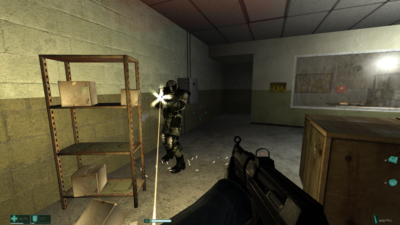
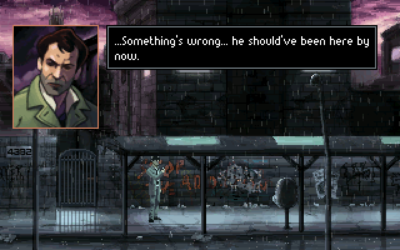
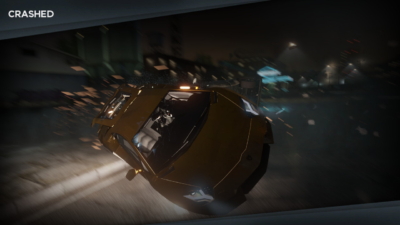
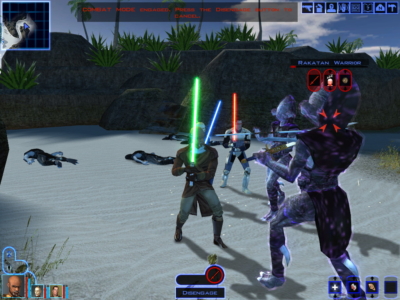
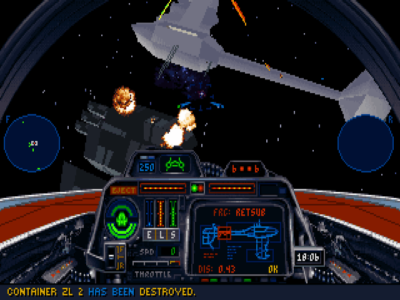
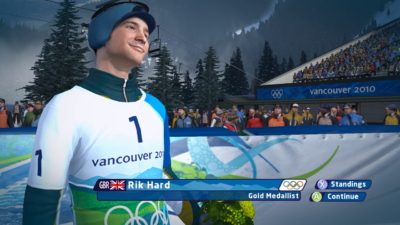
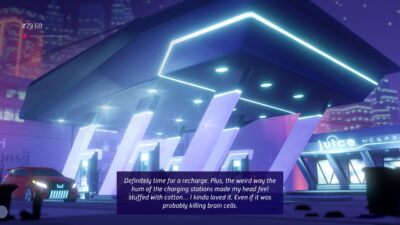


 Posts
Posts
Always eager to check out a new (old) review, thanks for keepin’ on keepin’ on!
January 7, 2023 @ 5:40 am
Thanks Nick, all the best to you and the other Noiseheads for 2023!
January 10, 2023 @ 11:06 am